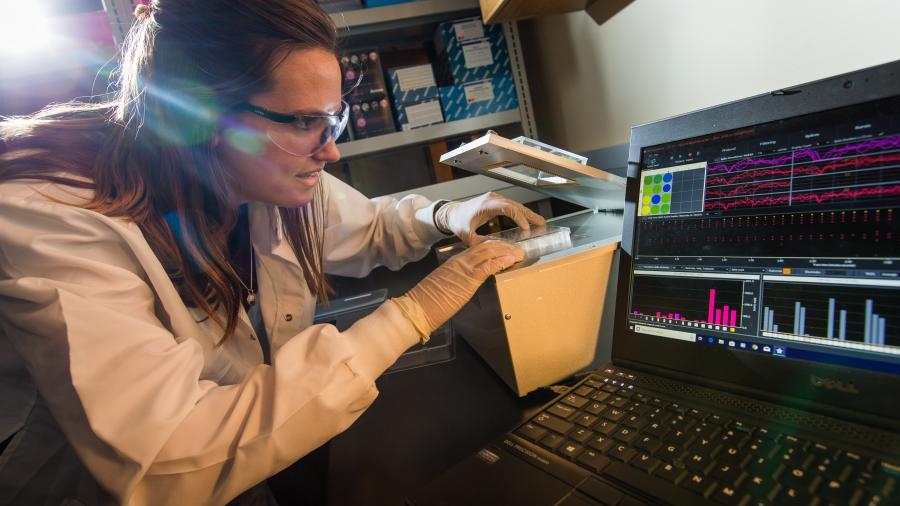Westmont Magazine Summer Research Studies Alzheimer’s Disease

Westmont researchers are using a new high-tech tool to understand human neurological disorders, such as Alzheimer’s disease.
As part of a summer research project, Yi-Fan Lu, Westmont assistant professor of biology, and senior Heidi Pullmann used a new microelectrode array to detect and record the response of neurons to genetic mutation or toxins.
“The array can also screen for new drugs, examining if any compounds have reversed the effect of the mutation or the toxin to the neurons,” Lu says. “This equipment has the power to push neurological disorder research to the next level in 20 years and potentially discover new drugs for many diseases that currently have no cure.”
Lu and Kristi Cantrell, associate professor of chemistry at Westmont, work with colleagues at UC Santa Barbara to examine peptides that may lead to Alzheimer’s disease. Lu and Pullmann, a biology major from Florence, South Carolina, tested four shorter tau peptide variants during the summer.
“I hope this research will lead to greater understanding of Alzheimer’s and other neurodegenerative diseases,” Lu says.
After graduating, Pullmann plans to study agricultural and plant sciences in graduate school. “I’m interested in developing better ways to grow plants through plant genetics or agricultural technologies,” she says. “I want to aid in discoveries that can help end world hunger.”
Pullmann and 22 other students presented findings from their projects at the Celebration of Summer Research September 21. Each summer, selected Westmont students work directly with faculty on research and scholarly projects.